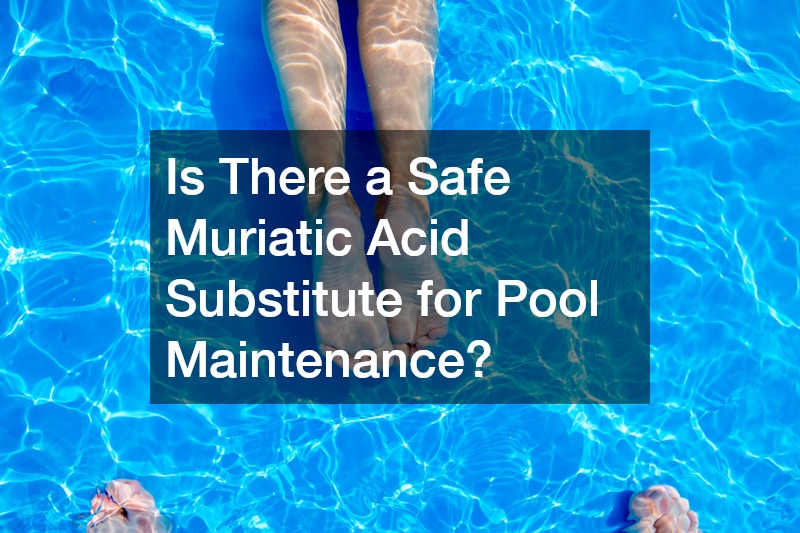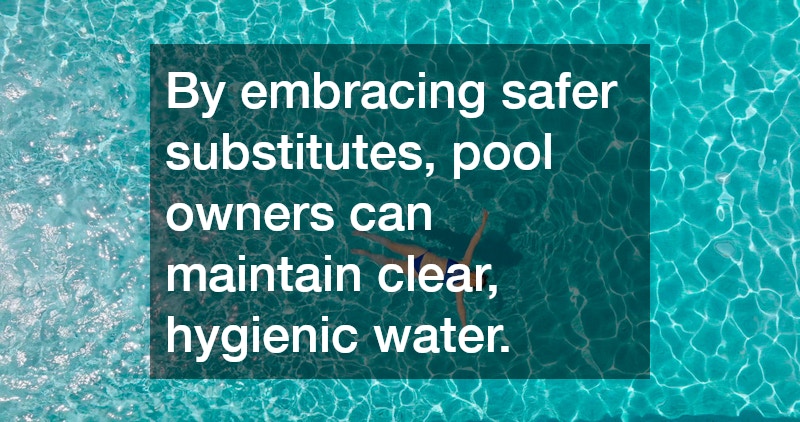
Maintaining a clean and pH-balanced swimming pool is crucial for the health of both the pool and its swimmers. Traditionally, muriatic acid has been a widely used chemical for controlling pH levels in pools. However, concerns over its safety and potential health risks have prompted pool owners to seek alternatives.
Muriatic acid, also known as hydrochloric acid, can be hazardous, causing eye and skin irritation and even respiratory issues if not handled properly. As a result, it’s essential to explore safer options that provide the same efficiency without posing as many risks.
This article delves into the possibility of finding a safe muriatic acid substitute pool owners can rely on for effective pool maintenance.
With the growing focus on eco-friendly and user-safe products, the demand for muriatic acid alternatives is rising. The pool maintenance industry is responding with innovative solutions. Understanding these alternatives helps in choosing the right products to keep your pool pristine and safe for everyone.
Muriatic Acid: An Overview
Muriatic acid is commonly used to lower the pH level and total alkalinity of pool water, ensuring it remains within a safe range. Its effectiveness has made it a staple in pool maintenance, but not without its hazards. The fumes released from this acid can pose respiratory risks, especially in poorly ventilated areas.
Moreover, improper handling of muriatic acid can lead to skin burns and other injuries. Such risks necessitate wearing protective gear and taking safety precautions during its use. For many pool owners, these safety concerns outweigh the benefits, driving the search for less harmful solutions.
In addition to personal safety risks, muriatic acid can also affect pool surfaces and equipment if used excessively or improperly. Over time, it may lead to corrosion, damaging tiles, liners, and metal parts. As a result, the need for a reliable substitute becomes even more crucial for pool longevity.
Safe Alternatives to Muriatic Acid
Sodium bisulfate, often marketed as dry acid, is a popular alternative to muriatic acid. It is safer to handle and does not emit harmful fumes, reducing the risk of respiratory and skin irritation. Moreover, its granular form makes it easier to store and apply, offering convenience for pool maintenance.
Another substitute is the use of carbon dioxide (CO2) injection systems, which adjust pH levels without the need for acidic chemicals. This method has gained traction, particularly for its eco-friendliness and safety. However, it requires a considerable upfront investment in equipment, which may not be feasible for all pool owners.
Yet another option is the use of natural pH reducers, such as vinegar or citric acid. Although not as powerful as commercial products, these natural alternatives offer a safer, chemical-free way to manage pH levels. However, frequent applications and a watchful eye on pH fluctuations are necessary to ensure the effectiveness of these options.
Factors to Consider When Choosing a Muriatic Acid Substitute
When selecting a muriatic acid substitute, safety should be a top priority. It is crucial to choose a product that minimizes health risks while effectively managing pH levels. Pool owners should assess how each alternative impacts their safety and ease of use in the long term.
Cost is another significant factor, as some substitutes, like CO2 systems, may involve higher initial expenses. Balancing the cost with potential safety benefits is essential for making an informed decision. Furthermore, evaluating the long-term cost-effectiveness of maintaining pool equipment with these alternatives is advisable.
The environmental impact of pool chemicals is increasingly important to consumers. Opting for eco-friendly alternatives reduces the chemical footprint of pool maintenance. Ensuring that selected products align with environmental values can also offer peace of mind while enjoying a swim.
While muriatic acid has been a reliable tool for pool maintenance, the risks associated with its use have prompted many to look for safer alternatives. Between sodium bisulfate, CO2 systems, and natural solutions, pool owners have various options to explore. Selecting the right muriatic acid substitute for pools ensures a healthy, enjoyable swimming environment.
The decision on which substitute to use depends on several factors, including safety, cost, equipment compatibility, and environmental concerns. Each alternative offers unique benefits and potential challenges, making it important to weigh personal needs against these factors. A thorough understanding of these aspects can aid in making the most suitable choice for your pool maintenance regimen.
By embracing safer substitutes, pool owners can maintain clear, hygienic water while minimizing health and environmental risks. The evolution of the pool maintenance industry offers hope for sustainable and user-friendly solutions. As this trend continues, those seeking a muriatic acid substitute can benefit from both innovation and improved safety.



